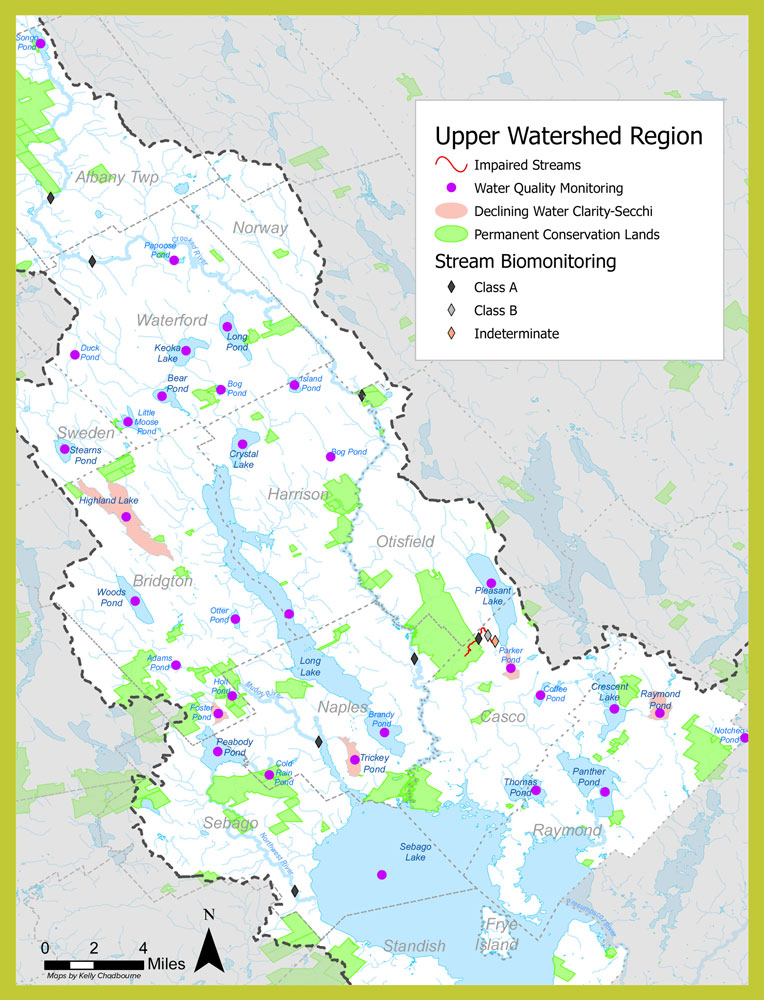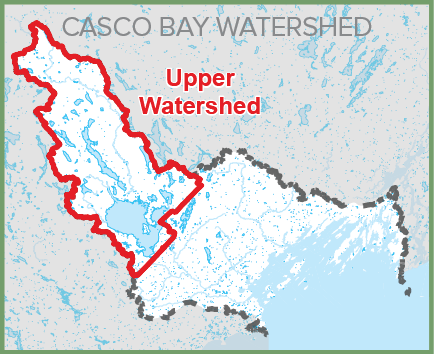
STATE OF CASCO BAY
Upper Watershed Highlights
Every five years Casco Bay Estuary Partnership reports on the health of Casco Bay and its watershed. Based on the best available data, the State of Casco Bay report analyzes indicators of ecological changes in water quality, habitat, and more.
Presented here are key findings for the Upper Watershed region.
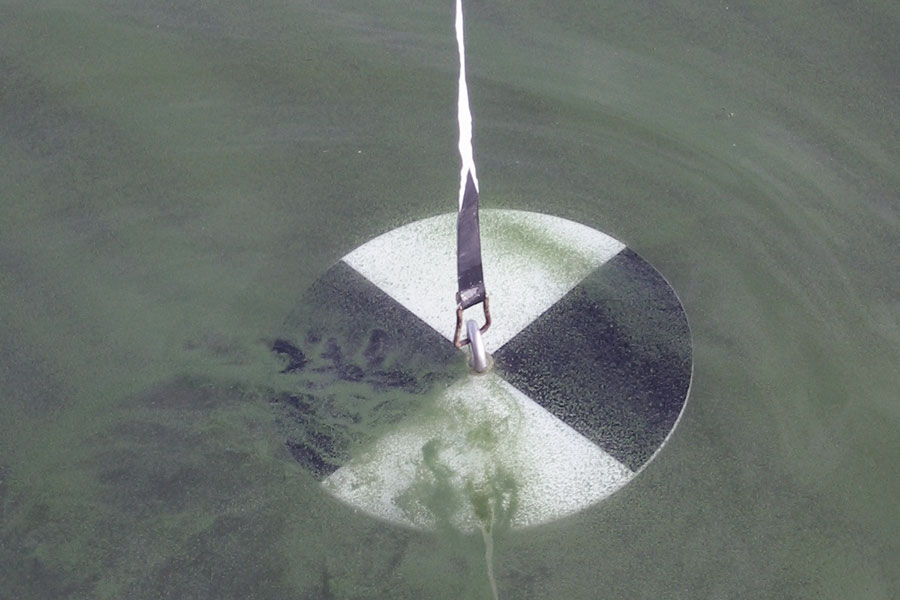
Indicator D: INLAND WATER QUALITY
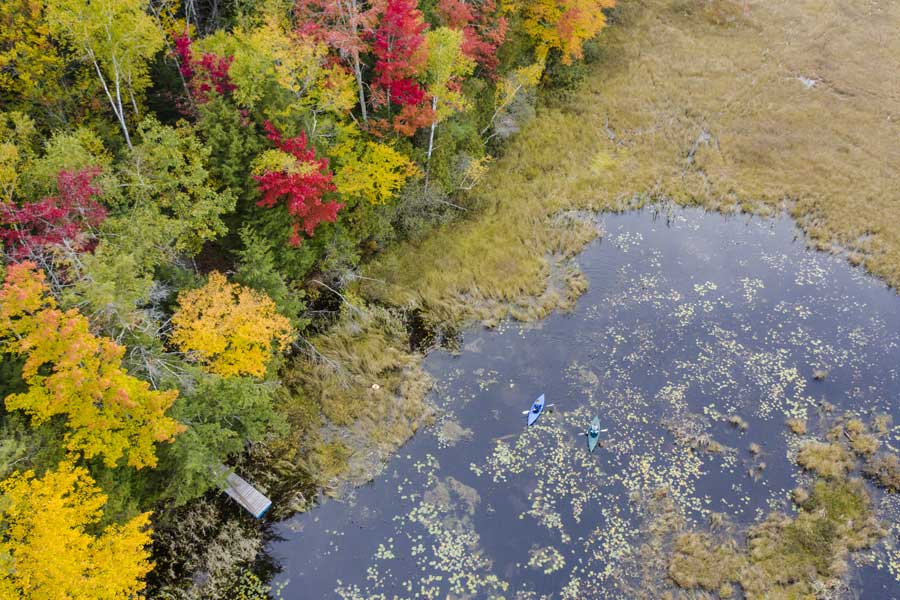
Indicator N: CONSERVED LANDS
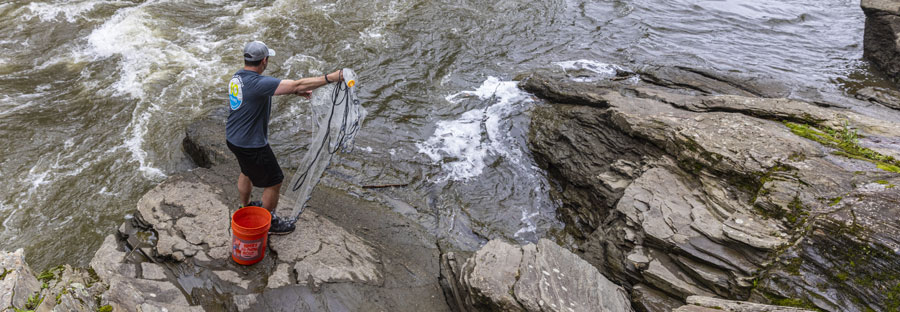
Indicator D: INLAND WATER QUALITY
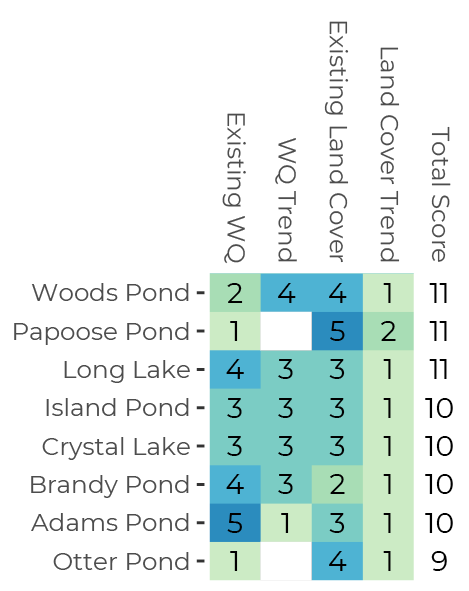
SPOTLIGHT
Education Programs
Organizations and educators in the Upper Watershed region are dedicated to providing opportunities for students to learn about and value their unique ecosystem. Programs offered by Portland Water District include TroutKids, through which students learn about water quality and have hands-on science and stewardship opportunities, and WaterWays, which teaches students about how we use, share, pollute, and protect water. Cumberland County Soil & Water Conservation District’s CONNECT program focuses on clean water education with lessons, field trips, and service learning. Both organizations, other collaborators, and USM hold the Southern Maine Children’s Water Festival annually, with support from CBEP. CBEP funded two projects by Lakes Environmental Association, “Headwaters Initiative: Exploring Our Watershed” and “Shift Living Connections 6th grade Program to Online Format.” Photo: PWD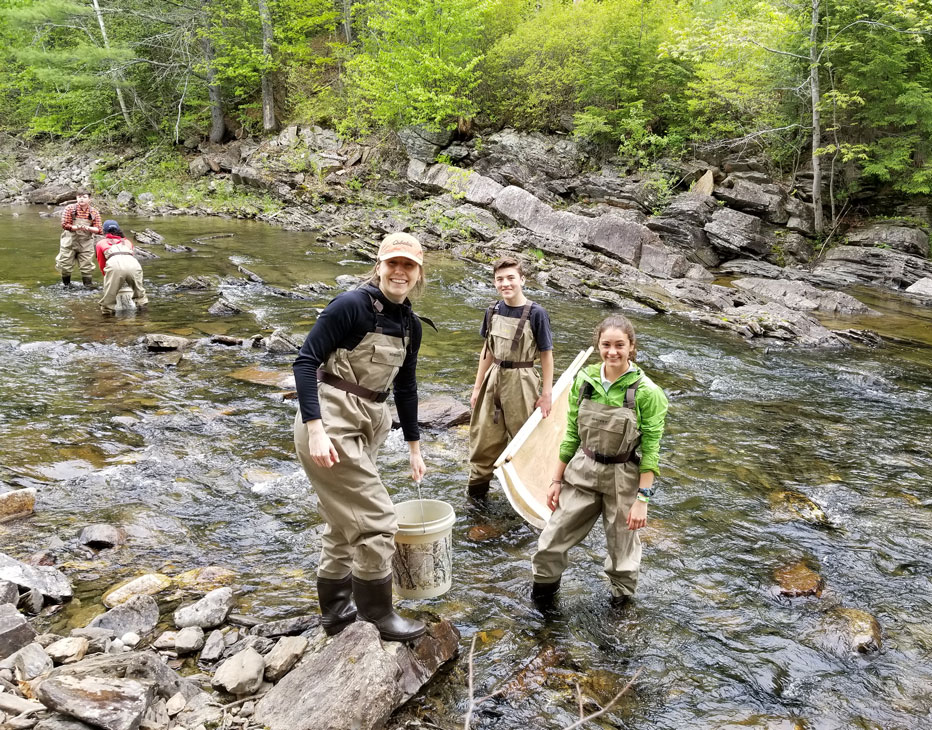
Community Collaboration
The Upper Watershed region has a long history of citizens and communities working together to protect natural areas, with the goals of ensuring clean water, climate resilience, robust ecosystems, and access to open space and recreation. Since 2000, CBEP has provided funding support to 14 habitat protection projects in at least nine communities by five different organizations. Land recently protected by Loon Echo Land Trust includes Perley Mills Community Forest, Edwards Forest, and Tiger Hill Forest. Land recently protected by Western Foothills Land Trust includes parcels aligned with the Crooked River and the Twin Bridges Preserve. Photo: Jerry Monkman, Ecophotography.com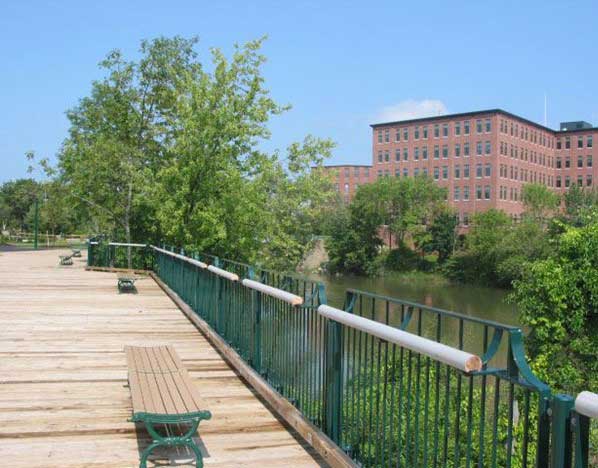
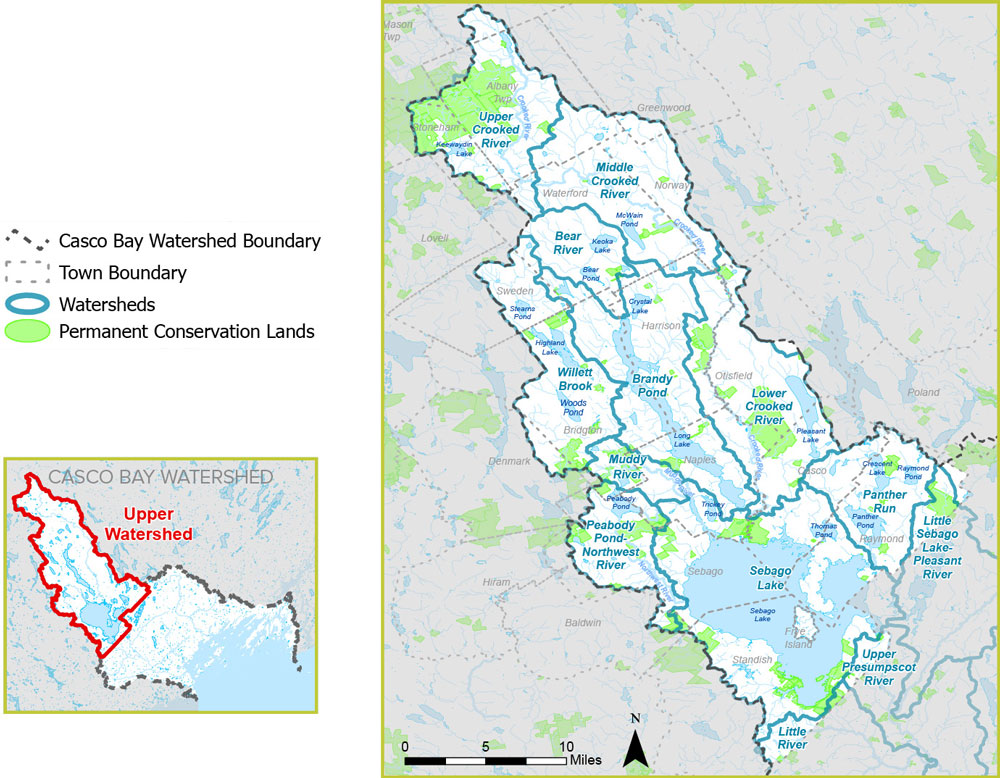
ON THE HORIZON
Protecting Quality of Drinking Water
Sebago Lake is used by Portland Water District (PWD) to provide drinking water to more than 200,000 people in Portland and our region. The surrounding forests and wetlands protect the quality of the lake and its sub-watersheds, but loss of forest threatens water quality. Sebago Clean Waters is a coalition of land trusts, businesses, and PWD to protect water quality, community well-being, and the health of fish and wildlife in the Sebago watershed through forestland protection.
Guarding Against Pollution
All of the region’s fresh waters are polluted by trace levels of mercury, which can accumulate in the bodies of freshwater fish. A transition away from fossil fuels may help reduce mercury pollution. Nutrients like nitrogen and phosphorus can fertilize excessive growth of algae in water bodies, putting lakes at risk. Reducing the application of fertilizers to the landscape, proper upkeep of camp roads, and maintenance of vegetative buffers can mitigate the effects of nutrient pollution.
Furthering Tourism & Resource Protection
Much of the Upper Watershed’s economy is based on tourism, because there are so many opportunities for outdoor sports and recreation like boating, camping, fishing, snowmobiling, and hiking. These activities are all ecosystem-dependent, so overuse and abuse can lead to degradation of the resource. Campaigns like Leave No Trace for trash and the Milfoil Team for inspection of boats and control of invasive milfoil, along with a prohibition against transporting firewood, are positive steps toward encouraging tourism while protecting its source.
View a PDF version of this page that can be downloaded and printed.
Drivers & Stressors
What’s Affecting the Bay?
Human Connections
What’s Being Done?
If you would like to receive a printed State of Casco Bay report, send an email request to cbep@maine.edu.
This document has been funded by the U.S. Environmental Protection Agency under Cooperative Agreements #CE00A00348-0 and #CE00A00662-0 with the University of Southern Maine.
Suggested citation: Casco Bay Estuary Partnership. State of Casco Bay, 6th Edition (2021).
